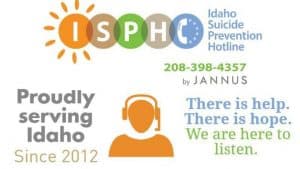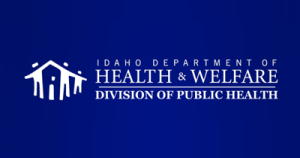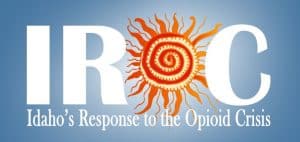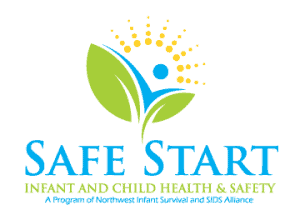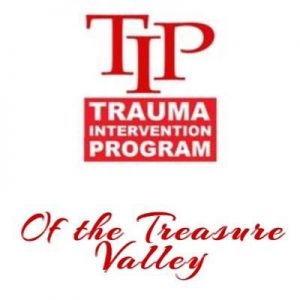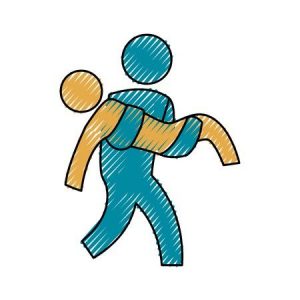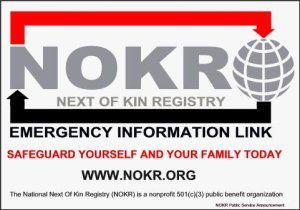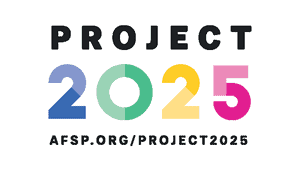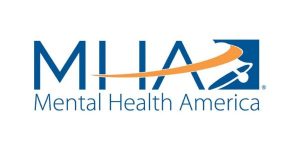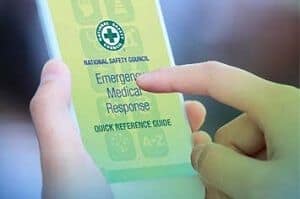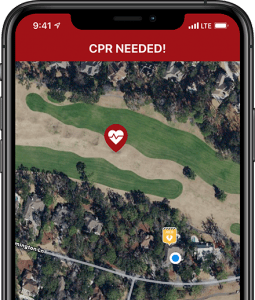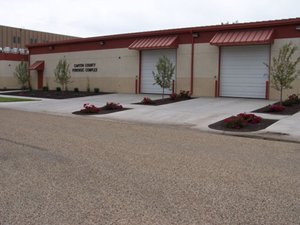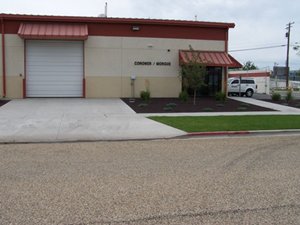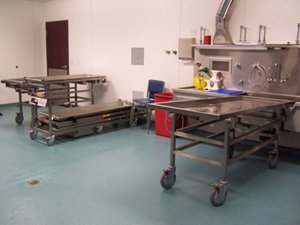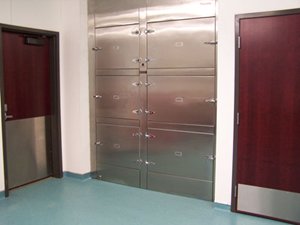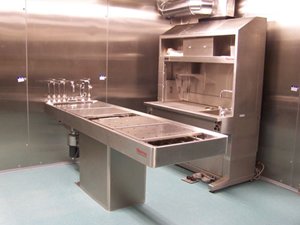Jennifer Crawford
CORONERThe primary role of the Coroner is to determine and certify the cause and manner of death for those cases which fall under the jurisdiction of the Coroner. (unexplained, unusual, suspicious, homicides, suicides, accidents, no physician, in police custody, or under 18)
- Dispatch – Scene – Interviews – Examination
- Specimen collection
Coroners will also assist pathologist with autopsy (as needed), locate and notify next of kin immediately, and provide agency assist notifications.
Find a Local Prescription Drug Drop-off Location
odp.idaho.gov/prescription-drug-take-back-program
Opioid Overdose Prevention Information
https://www.cdc.gov/opioids/overdoseprevention
Idaho Suicide Prevention Hotline
Text or Call 1-208-398-4357
idahosuicidepreventionhotline.org
Dial 988 for the 24-hour Suicide and Crisis Lifeline
The Coroner does not issue death certificates to the public. These copies need to be obtained from the Department of Vital Statistics, or they can be ordered through the funeral home.
State of Idaho Department of Vital Statistics >
208-334-5988
The Coroner may authorize an autopsy to be performed by a licensed physician to aid in accurately and scientifically determining the cause of death. The Coroner will also prepare a written report regarding the information gathered during the investigation.
The Coroner may include medical records from hospitals, physicians, and other health care facilities to aid in determining cause of death. These records are placed in the case files, but due to Federal Code concerning protected health information, they are not subject to public view.
Case reports are subject to public view only after the conclusion of the investigation. These reports are available at the Coroner’s Office. The files to be viewed will not include protected health information or reports from other agencies.
In late 2006, plans were underway to build a Canyon County Forensic Complex. Construction began in 2007, and was completed in January 2008. The new building is home to the Canyon County Coroner’s Office and Morgue, as well as the Sheriff’s Office Crime Lab. All evidence collected at crime scenes and autopsies are kept in this one, secure location.
The Morgue consists of a large, main autopsy room with one working station currently, as well as the plumbing and wiring for another. There are six individual coolers for body storage, and a second decomp room, with state of the art ventilation. This room has one cooler for body storage, and was designed with special walls to convert into a walk-in cooler if the need arises.
Idaho Resources
Idaho Suicide Prevention Hotline
“Idaho Suicide Prevention Hotline provides crisis intervention, emotional support, problem solving, and referrals to local resources for persons at risk for suicide and for those concerned about them.”
Idaho Health Tools
“The Idaho Diabetes Prevention and Control Program (DPCP), Idaho Heart Disease and Stroke Prevention Program (HDSP), Idaho Tobacco Prevention and Control Program, Idaho Suicide Prevention Program, and many more have a number of publications available to individuals, healthcare professionals, and others who care for the well-being of people across Idaho. These materials can be ordered free of charge by selecting the quantity of each material you would like and completing a check out process.”
Idaho’s Response to the Opioid Crisis (IROC)
“Idaho’s Response to the Opioid Crisis (IROC) project is working to fight the opioid epidemic currently plaguing Idahoans, their family members and friends. The Division of Behavioral Health (DBH) is currently using a multifaceted approach that seeks to expand access to Medication-Assisted Treatment (MAT), reduce access to opioids through prevention efforts, enhance the recovery-oriented system of care, and reduce deaths.”
Safe Start
“Safe Start, a program of Northwest Infant Survival and SIDS Alliance, is dedicated to improving childhood health and safety throughout the Northwest via our educational programs, public safety initiative and regional partnerships. We believe every child deserves to celebrate their first birthday and beyond, free from accidental death and injury.”
Trauma Intervention Program of the Treasure Valley
“The Trauma Intervention Program of the Treasure Valley was founded in 2015 as a partnership between local officials, community leaders, residents and the national office of Trauma Intervention Programs Inc.
The purpose of TIP of the Treasure Valley is to provide immediate emotional and practical support to survivors of tragedy. Local residents are trained to be TIP Volunteers, and as TIP Volunteers they respond on a 24/7/365 day basis to requests for assistance from police officers, firefighters, paramedics, deputy coroners, and hospital personnel.
Volunteers respond to support survivors of all types of tragedy including sudden deaths, suicides, auto accidents, drownings, and sudden infant deaths. TIP Volunteers also support travelers when tragedy occurs in the Treasure Valley when they are far from home.“
Ada/Canyon County Self Rescue Manuals
“A guide to all community resources and supports in Ada County & Canyon County.”
Online Resources
International Next of Kin Registry
“The Next Of Kin Registry (NOKR) was established as a FREE tool for daily emergencies and national disasters. NOKR is your emergency contact system to help if you or your family member is missing, injured or deceased. NOKR is the central depository for Emergency Contact information in the United States plus 87 other countries. (See NOKR’s network of volunteers). NOKR is a non-profit humanitarian organization dedicated to bridging rapid emergency contact information. NOKR was established in January 2004, for daily emergency situations.
NOKR provides the public a free proactive service to store your emergency contacts, next of kin and vital medical information that would be critical to emergency response agencies. Stored information is only accessible via a secure area that is only accessible by emergency public trust agencies that have registered with NOKR.”
American Foundation for Suicide Prevention-Project 2025
“A nationwide initiative to reduce the annual rate of suicide in the U.S. 20 percent by 2025.
Despite the fact that more is being done today to prevent suicide than at any other time in history, the rate of suicide continues to rise in the United States. Led by the largest suicide prevention organization in the United States, with guidance from the top minds in the field and dynamic data modeling, the American Foundation for Suicide Prevention has determined the programs, policies and interventions that will prevent as many suicides as possible. Project 2025 is the collaborative effort to implement and scale these strategies nationwide.”
Mental Health America- Free Mental Health Screening Tests
“Mental Health America (MHA) – founded in 1909 – is the nation’s leading community-based nonprofit dedicated to addressing the needs of those living with mental illness and to promoting the overall mental health of all Americans. Our work is driven by our commitment to promote mental health as a critical part of overall wellness, including prevention services for all; early identification and intervention for those at risk; integrated care, services, and supports for those who need it; with recovery as the goal.”
Man Therapy
“Working aged men (25-54 years old) account for the largest number of suicide deaths in the U.S. These men are also the least likely to receive any kind of support. They don’t talk about it with their friends. They don’t share with their family. And they sure as heck don’t seek professional treatment. They are the victims of problematic thinking that says mental health disorders are unmanly signs of weakness.
And I, Dr. Rich Mahogany, am dedicated to changing that. Part of a multi- agency effort, including the Colorado Office of Suicide Prevention and Cactus, Man Therapy® is giving men a resource they desperately need. A resource to help them with any problem that life sends their way, something to set them straight on the realities of suicide and mental health, and in the end, a tool to help put a stop to the suicide deaths of so many of our men.”
Substance Abuse and Mental Health Services Administration (SAMHSA)
“The Substance Abuse and Mental Health Services Administration (SAMHSA) is the agency within the U.S. Department of Health and Human Services that leads public health efforts to advance the behavioral health of the nation. SAMHSA’s mission is to reduce the impact of substance abuse and mental illness on America’s communities.”
Pool Safely Campaign
“To Pool Safely means adopting critical water safety steps to ensure that a great afternoon at the pool doesn’t turn into a tragic one.”
“To improve pool and spa safety, the U.S. Consumer Product Safety Commission (CPSC) launched Pool Safely: Simple Steps to Save Lives, a national public education campaign to reduce childhood drownings, submersion injuries and entrapments.”
Helpful Apps
Emergency Medical Response Quick Reference App
“The NSC Quick Reference Guide is a vital reference tool used extensively throughout the Emergency Medical Response course, but it is also available to anyone who would like first aid guidance at their fingertips. It provides a list of abbreviations and memory aids, as well as an illustrated summary of treatment steps for various illnesses and injuries.”
Pulse Point App
“You know the difference early CPR and defibrillation can make in a Sudden Cardiac Arrest event. Fifty-seven percent of U.S. adults say they’ve had CPR training, and most would be willing to use CPR or an AED to help save a stranger’s life. Yet only 11% say they’ve used CPR in an actual emergency—that’s a number we can increase together.
When that life-threatening call comes in emergency responders will be ready. But what if someone was already at the scene, applying lifesaving CPR and defibrillation until they arrive? With PulsePoint, the dispatch center immediately alerts CPR-trained individuals about nearby cardiac arrest events through the free PulsePoint Respond mobile app, and also lets them know the location of the closest AEDs.“
Frequently Asked Questions (FAQs)
Please note that this information is for general information only and must not be interpreted as a legal description of a Coroner’s duties. Reference should be made to the Idaho Code for complete information.
Why is the Coroner’s Office Investigating the death of my loved one?
The Canyon County Coroner’s Office is governed by Idaho law. These laws require the Coroner or his/her designee investigate certain types of deaths. The Coroner investigates many types of deaths, such as those due to foul play, suicide and accidents. However, he must also investigate natural deaths when they fall under certain criterion. For instance, deaths that:
- are sudden and unexpected
- are from illness not under treatment or not attended by a qualified physician
- occur in certain types of institutions
- raise questions that can only be answered fairly after an investigation.
Where is the Coroner/Deputy Coroner taking my deceased loved one?
It is at the discretion of the coroner if the decedent should require an autopsy or further examination. If this is deemed necessary, your loved one will be transported back to the Canyon County Morgue located at 1014 E Belmont St in Caldwell, ID. If the coroner releases your loved one from the scene/residence, they will be transported to your preferred funeral home.
What if I am unsure of what funeral home/mortuary I would like to use?
In the event that the coroner releases your loved one but you need more time to decide which funeral home to use, a non-preference mortuary will provide transport and a safe place at their facility while you make this decision. Non-preference mortuaries are on an on-call rotation based on region within the county. (Please see resources).
Will my loved one receive an autopsy?
Autopsies are performed at the discretion of the Coroner in accordance with Idaho law and forensic standards of practice. The decision is based on the circumstances of death.
How will I know if an autopsy needs to be performed on my loved one?
Legal next of kin will be notified if a decision has been made to conduct an autopsy. Your assigned investigator will contact you and can answer questions you may have.
What if I do NOT want an autopsy to be performed?
Autopsies are authorized by the Coroner, based on need to determine cause and manner of death. Autopsies are not elective and do not require the consent of the next of kin. However, please make sure that your views are expressed to the investigator of the case and your concerns will be noted appropriately in the case file.
What if I DO want an autopsy to be performed but the Coroner determined one is unnecessary to determine cause and manner of death?
The Coroner reviews each and every case to make the determination whether an autopsy is warranted to determine cause and manner of death. If it is decided the cause and manner of death can be accurately determined without an autopsy, one will not be completed. Please make sure and express your wishes for an autopsy to the investigator of the case. Should you wish to proceed with a private autopsy at your discretion and expense, please refer to the resource page.
What about organ/tissue donation?
The deceased individual must meet certain criteria to be eligible for organ, tissue and/or whole-body donation. Additionally, deaths under the investigation of the Coroner’s Office require the approval of the Coroner for donation. Donation is evaluated and approved on a case-by-case basis, however, circumstances of the death can prevent donation from occurring. Additional information on organ and tissue donation can be found at the Tissue-Organ website listed under the RESOURCES tab of this website.
How long does it take to determine the cause and manner of death?
Unfortunately, there is not a set amount of time on how long it will take to determine the cause and manner of death. An autopsy/inspection is generally completed within 24 hours. We try to have the cause and manner of death determined within 30-60 days, however, this is only a general timeline dependent on toxicology, consultations or other specialized testing.
How long does it take for toxicology results to come back?
Due to the fact toxicology is sent to an outside facility for testing, there is no set time for when we will get the results back. Toxicology results can take up to 4-6 weeks to be completed.
My loved one had an autopsy. Will we still be able to hold an open casket funeral?
The surgical procedures used to perform the autopsy do not interfere with having an open casket funeral.
My loved one had an autopsy. When will the final results be back?
The autopsy procedure is a very comprehensive examination and the process, along with additional associated testing, is time consuming. The final report (known as the Autopsy Report) is usually available in twelve to sixteen weeks after the autopsy. If you would like to find out if there are preliminary autopsy findings, you may call and request to speak with the investigator of the case file.
Do I need to identify the decedent, and will I be able to view my loved one at the Canyon County Coroner’s Office?
The staff at the Canyon County Coroner’s Office works diligently to properly identify all individuals who come through the office using multiple circumstantial and scientific methods. Family identification of the decedent is not available. Viewing of your loved one in the comfort of a funeral home setting is the only option available in Canyon County. The Canyon County Coroner’s Office is a secure facility and due to the nature of the types of cases and evidence involved in cases investigated here, viewing of loved ones at our facility is not available.
When will my loved on be released from the Coroner’s office?
In most circumstances, your loved one’s body is available for release to a funeral home within 24 hours. If the decedent was transported to the office during the weekend or a holiday, he/she should be available for release the next business day. The Ada County Coroner’s Office will NOT release a decedent until proper paperwork has been signed with the next of kin’s funeral home of choice.
How do I get my loved one’s personal property back?
Please contact the Canyon County Coroner’s Office to schedule an appointment or designate another party to pick up your loved one’s personal effects.
There is blood and/or biohazardous material located where my loved on died. Who do I call to help with this?
Here at the Canyon County Coroner’s Office, we do our best to clean up the scene/residence, within reason, but this cannot always be completed to entirety. Please refer to our resources page for a list of local companies that can professionally assist with your needs.
How do I get a death certificate?
The Canyon County Coroner’s Office cannot issue death certificates, per state law. Death certificates, however, may be obtained through the funeral home carrying out the final arrangements. Death certificates are also available through the Idaho Department of Health and Welfare Idaho Bureau of Vital Records and Health Statistics (IVR@DHW.IDAHO.GOV).
Why does the death certificate I received say pending?
A “pending” death certificate is issued to establish a person has died while the cause and manner of death are being investigated. This pending death certificate allows you to make funeral arrangements and start other legal processes while the cause and manner of death are being determined. Once the cause and manner of death are determined by the forensic pathologist, a supplemental death certificate is submitted to the Idaho Department of Health and Welfare Idaho Bureau of Vital Records and Health Statistics by our office with the final cause and manner of death.
Do I have to pay for Coroner services? (autopsy, toxicology, investigation, etc.)
The Canyon County Coroner’s Office is a county government office funded by tax dollars. Standard services provided by the Canyon County Coroner’s Office, on cases under the jurisdiction of the office, are of no additional cost to the deceased individual’s immediate family.
Which funeral home should I use?
The Canyon County Coroner’s Office is a governmental office. Coroner personnel cannot refer families to funeral homes. We encourage you to consult with your family and friends for recommendations. If you are unsure who to use, please refer to the resources tab for a list of local funeral homes and mortuaries.
Who can make funeral home and final disposition arrangements?
Only legal next of kin or an individual who holds a durable power of attorney for health care can make funeral arrangements or final disposition decisions for a decedent. A significant other or friend, regardless of how long they have been involved with the decedent, cannot make arrangements unless they have legal documentation authorizing them to do so.
What is durable power of attorney for healthcare?
A durable power of attorney for healthcare does not have an expiration date listed and continues until death, especially if the authorizing party should become mentally incompetent. There are several types of power of attorneys. The Coroner’s Office requires that anyone acting on behalf of a decedent have a durable power of attorney for healthcare that allows that person to make decisions for your loved one. If you are the legal next-of-kin for the decedent, the power of attorney is not necessary. However, Idaho law states that a person who has a durable power of attorney for healthcare is the person who will make final decisions for your loved one. That person may be a family member, a friend or a professional who was given this authority in a written document that is properly completed.
A power of attorney that is NOT durable generally ends at death and would not allow the holder to handle final arrangements or authorize the release of information.
When is a personal representative needed?
When there is no one available who would have legal authority to handle the legal matters of the estate, the court can appoint a personal representative. An application or case must be filled with the local court requesting assignment as a personal representative. The case will be assigned to a judge and there may be hearings held in the matter. At times the treasurer of the county of jurisdiction will be assigned this responsibility under Idaho code. The person assigned as personal representative must follow the court’s directions as stated in the order. If you choose to become a personal representative for a decedent, you may want to seek advice from an attorney.
What are Indigent Services and who/how does one apply?
If a family member or friend has passed and assistance is needed to pay for their cremation, please complete and provide an Application for Cremation Assistance. You may mail or hand deliver a completed application to our secured drop box: Canyon County Indigent Services, 111 N. 11th Avenue, Suite 340, Caldwell, ID 83605. You may also email the application to: indigentfund@canyoncounty.id.gov. An interview will be conducted to determine if the requirements of indigency and residency are met. For more information on Canyon County Indigent Services click here or call 208-454-7419.
What do I do next?
We recommend seeking support from family and friends to assist you in getting through this difficult time. If you are the legal next of kin to the deceased individual or the executor of his/her estate, you will need to begin making final arrangements for your loved one. Once you have selected a funeral home to handle your loved one’s final arrangements, they will guide you and help you to fill out all of the necessary paperwork.
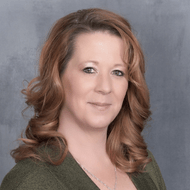
Address
1014 Belmont St.
Caldwell, Idaho 83605
Phone
P 208-454-7350
F 208-454-7464
*After hours: Call Non-Emergency Dispatch 208-454-7531
Hours
Weekdays 7am – 4pm
(excluding holidays)
